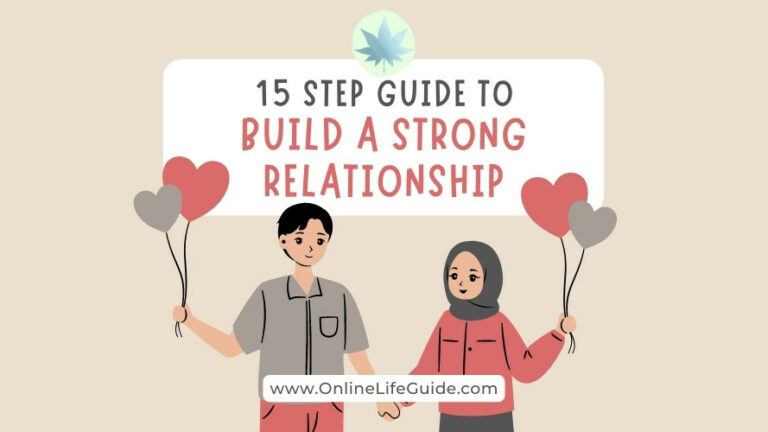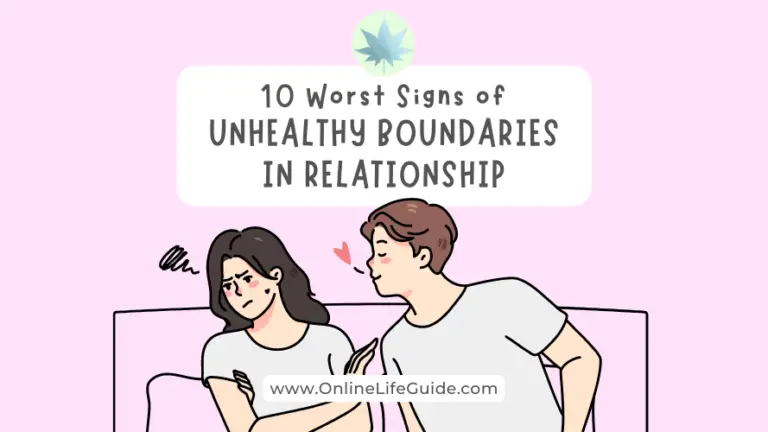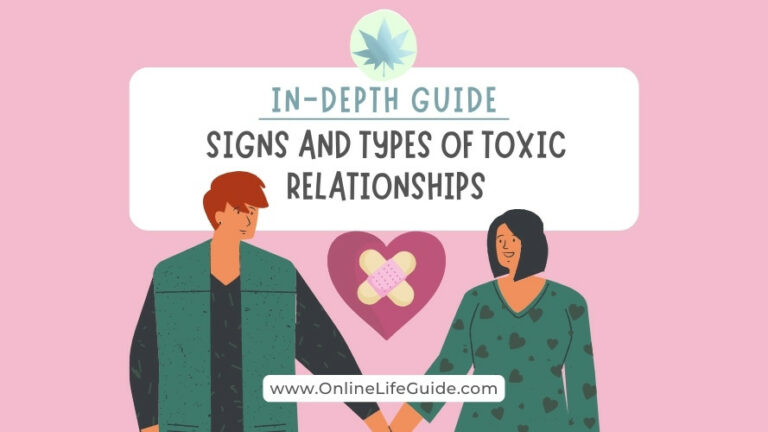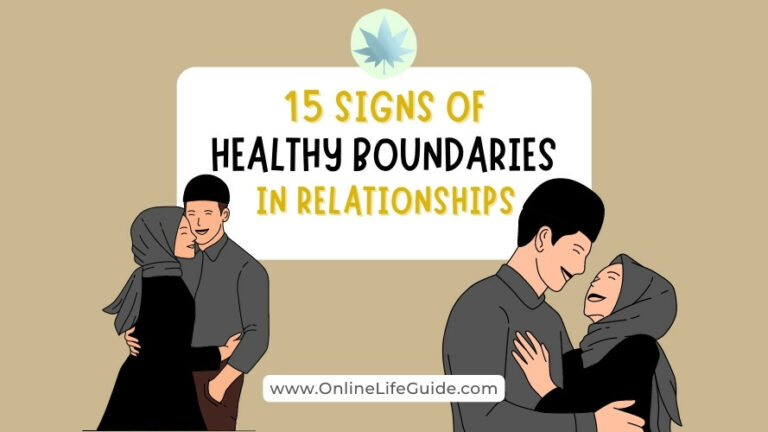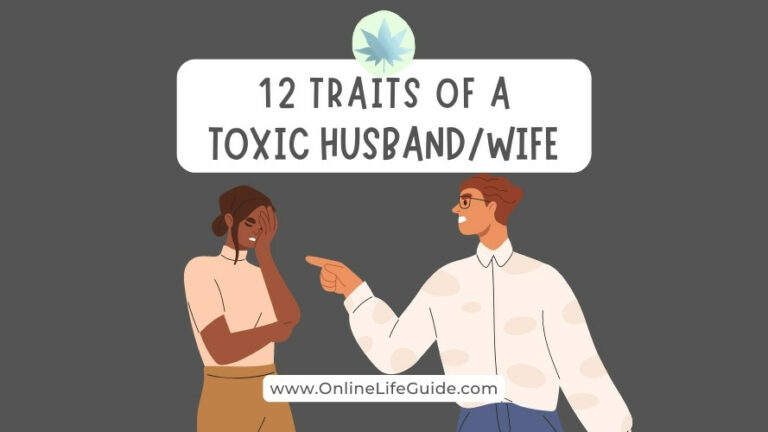15 Clear Signs of Enmeshment in a Relationship + How to Fix
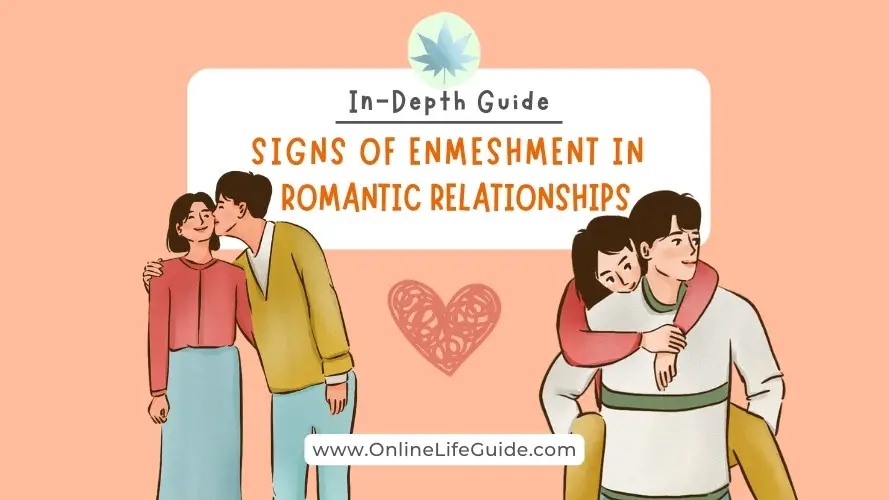
In this guide, we’ll dive deep into the enmeshed relationship dynamic. We’ll look at Jake’s story of how he developed enmeshment patterns that carried on into his marriage and affected the quality of his relationship with his wife. We’ll discuss the 14 telltale signs of an enmeshed romantic relationship and a 6-step guide to cope with it.
Before diving right into the psychology of an enmeshment relationship and the practical ways to deal with it, let’s take a quick quiz to see if you are in one:
| 1. | Is your partner overly dependent on you for emotional support? |
| 2. | Are you overly dependent on your partner for validation? |
| 3. | Do you feel like you have to put your partner’s needs ahead of your own and do you expect your partner to put your needs above theirs? |
| 4. | Are you overly involved in each other’s lives? |
| 5. | Do you or your partner often behave in a controlling manner? |
| 6. | Do you feel as if you are the one who is always giving in the relationship but not getting much in return? |
| 7. | Is your partner overly jealous or possessive of your time and attention or vice versa? |
If your answer to most of these questions was a resounding YES, you’re probably in an enmeshed relationship and should start setting some healthy boundaries (which we’ll discuss later in this guide).
Oftentimes what a lot of people perceive as closeness and intimacy in a relationship actually turns out to be enmeshment. Now, what in the world is “Enmeshment”? you might ask.
What is Enmeshment?
The term “enmeshment” was coined by Salvador Minuchin (a pioneer in structural family therapy) which refers to the enmeshing of the identities of two people. Essentially, the people in an enmeshed relationship are so entangled and immersed in each other that their identities are merged and they no longer have their own unique, independent identities.
It’s often natural and expected for a new couple to become enmeshed at the start of the relationship (blame the hormones in the honeymoon phase).
It’s a wonderful feeling to be infatuated with someone and fall head over heels in love. We can’t help but be obsessed with that person almost as if we are addicted to them. We find it hard to focus on anything else in the absence of our partner.
It’s all good and sweet in the beginning, but not so much after the honeymoon phase is over.
Ideally, as we begin to wean off of the initial intense emotions of attraction and obsession, we have to learn to recalibrate ourselves and return back to normal life.
Though we share a big part of our lives with our partners, we have to have a sense of autonomy to continue to live as functional humans in our personal and professional.
If we don’t regain our sense of autonomy and stay stuck in the enmeshed phase, we end up facing a lot of complications, suffocation, and toxicity in the relationship.
How Our Childhood Experiences Cause Enmeshment Patterns
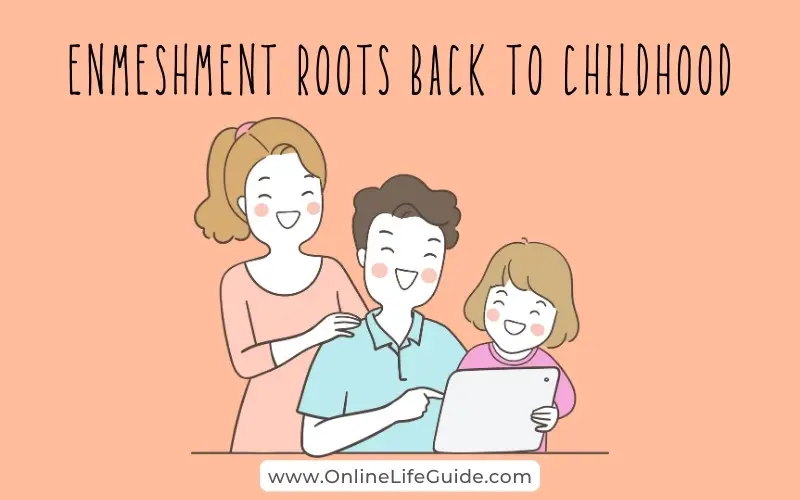
It’s a widely known and well-established fact in the field of psychology that the quality of our relationships during adulthood is heavily influenced by the quality and type of relationships we had as a child.
The good news is, neuroplasticity allows us to make shifts at any stage of life.
The things that happened to us earlier in our lives were out of our control, however, now as adults, we can begin to take charge and with the proper awareness, the right strategies, and a proactive approach we can gradually begin to turn things in our favor.
The first and most significant relationship a person has is with his/her parents. If we want to understand the dynamic of enmeshment in a romantic relationship, we must dive into the roots to determine where the patterns of enmeshment first originated from.
The Root Cause of Enmeshment

Meet Jake. Jake has had a very close bond with his mother. They were like best friends and he shared every detail of his life with her. From his childhood to his late teens and eventually adulthood, they went everywhere together, shared the same hobbies and interests, and had the same mindset and outlook on life.
Jake’s mother was overly protective of him and in trying to “protect” him, she had to have some control or influence over what he does, where he goes, and who he talks to.
Since they were so tightly bonded, Jake used to rely upon her to make his decisions and choices in life.

At the first glance, when people would see such a tight mother-son bond, they found it adorable and endearing. But in reality, Jake was mentally and emotionally dependent upon his mother and the mother was also dependent upon him in a slightly different way.
The only difference was the dominant role of the mother in this relationship dynamic.
Jake’s sense of worth came from his mother. He depended on his mother for validation, acknowledgment, and a sense of belonging. Whatever his mother thought or felt, he mirrored her state of mind and emotions, or else he would feel out of place on a subconscious level.
His definition of showing love and respect to his mother meant involving her in every matter and agreeing with her on everything.
On the other hand, his mother’s sense of self-worth came from her obedient and submissive son. She found a sense of order in having some level of control over Jake’s life. She found a way of fulfilling her protective motherly instincts by having a say in Jake’s matters even in his late 20s and 30s.
Jake being a mirror image of her in terms of his mindset gave her a sense that her son belongs to her and that she did a good job as a parent.

After his mother’s passing, life moved on for Jake. He got married to a beautiful girl and they both loved each other. But after a while, they began experiencing turbulence in their relationship. Turns out, Jake was repeating the patterns of enmeshment that he had with his mother. That’s how he learned to perceive and experience love.

Sometimes he would take the submissive role that he was used to, and other times he emulated the dominant controlling role of her mother because that’s how he learned to express care and protectiveness.
Below are a few examples of what enmeshed romantic relationships such as Jake’s practically look like.
Examples of What an Enmeshed Romantic Relationship Looks Like
- Enmeshed partners always want to know the tiny details about where their significant other is and when they will be back home.
- While it’s healthy to make big decisions mutually, people in enmeshed relationships often lose the ability to make even trivial choices and decisions without the involvement of their partner.
- On the other hand, enmeshed partners that are on the controlling end tend to make decisions without the involvement or consent of the other person. They believe that they know better and their decisions are better for everybody, essentially not valuing or respecting the voice of the other person in the relationship.
- People in enmeshed relationships expect their partners to spend much of their free time together.
- The person dealing with an enmeshed partner feels like they have to hide certain activities from their partner due to an utter lack of privacy and personal space (we’re not talking about immoral or shady stuff here, just normal activities or personal stuff that any normal healthy individual might want to keep to themselves).
- Because of the lack of autonomy, oftentimes enmeshed partners might find it difficult to express their thoughts and feelings lest they offend the other person, while at other times they try to impose their thoughts, opinions, and feelings expecting the other to feel the same way and agree upon everything.
- They can feel disappointed, disrespected, and even feel betrayed if their partner disagrees with them on something, and in turn, they refuse to consider the other person’s point of view out of resentment.
- Being so obsessed with their relationship often leaves them without friends and interests outside of the relationship.
- It’s healthy and necessary to work as a team to build a healthy and functional relationship but what enmeshed partners fail to realize is that they are still two separate people. Being a team doesn’t mean you become one person, share the same feelings and opinions all the time, and never disagree.
Keeping this relationship dynamic in mind, here are 14 common traits and signs that most enmeshed relationships exhibit.
14 Telltale Signs of Enmeshment in a Relationship

- Your emotions are merged with the emotions of your partner. You find it hard to separate or differentiate between your emotions and theirs. Whatever they feel, you feel obliged to feel the same way.
- You feel responsible for your partner’s emotions. You feel as if it’s entirely up to you to make them happy, and if they are not, you instantly feel guilty.
- You constantly feel anxious and on your toes in the worry of not upsetting your partner. Your relationship feels like walking on eggshells.
- On the other hand, you feel as if your partner is solely responsible for your emotions. In your mind, they are fully responsible to bring you happiness or misery.
- You feel guilty when you indulge in some self-care activity independently, like going out with your friends or spending some me-time, without involving your partner. You feel as if you have to involve your partner in everything.
- There is no sense of personal space or individual privacy. You both look into each other’s phones and messages without permission. You constantly criticize each other’s personal choices and ways of doing certain things.
- Having differing opinions and perspectives creates problems in your relationship. You get into harsh arguments and end up offending each other on a personal level whenever you have differences.
- Your self-esteem depends on the state that your relationship is currently in.
- Your partner controls and dictates every aspect of your life, from personal to professional and even your social life (this could be vice versa, as in you dictating your partner’s life).
- Guilt, anxiety, and shame are common emotions in your relationship, even if you don’t do anything wrong ethically/morally but are just tending to your own personal needs.
- Your worth is defined by how useful you are to your partner and his/her family.
- It’s hard for you to be your natural self and maintain your identity in the presence of your partner.
- If your partner is going through some trouble, you feel like it’s entirely your responsibility to rescue or fix them, even when they don’t even need any rescuing or fixing. You come up with your own set of assumptions about their problem and try to “help” them out by imposing yourself in the situation.
- People need space to process their emotions and get their thoughts straight, especially after an emotionally taxing event such as after having a heated argument. If your partner wants space for a couple of days and you get a panic reaction thinking that you’re losing your partner or that the relationship is over, you are probably emotionally enmeshed.
6-Step Guide to Fixing an Enmeshed Relationship
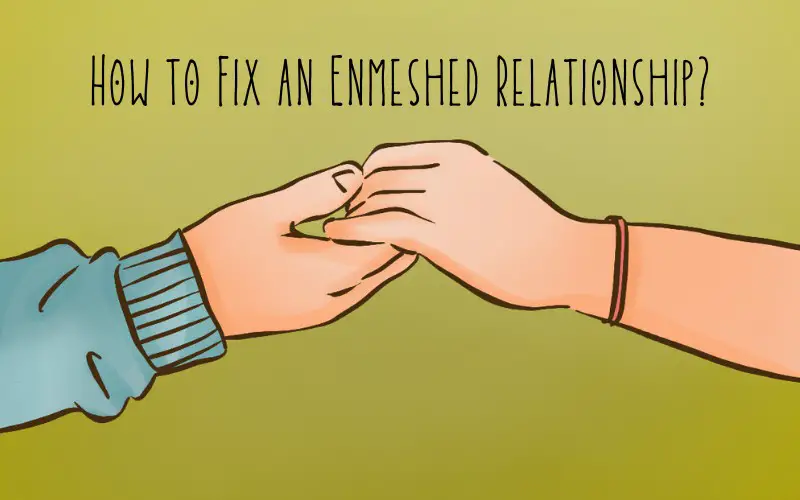
Enmeshment patterns come from lifelong mental programming and it will take a while along with lots of trials and errors to fix it. The subconscious mind of an enmeshed person has learned to love and care in this manner.
For them, love means that the other person has to agree with or obey what they said. It means they have to know everything about the other person’s life, even what they talk about with their friends and colleagues.
If they aren’t involved in every single thing that their partner does, they feel distant and get a sense that their relationship is growing apart.
For them, showing care means that they have to fix every problem their partner faces and protect them from the world at all costs.
To begin changing this psychology of enmeshment, there needs to be a change in how we perceive certain things and events. We must learn to question our assumptions and judgments and try to consider other ways of perceiving and doing things.
These 6 steps will help you get started on the process of fixing the enmeshment issues in your relationship.
1. Identify and Acknowledge the Problem
The very first and most important step is to identify the difference between intimacy and enmeshment.
Often what we consider closeness, care, and emotional intimacy is actually enmeshment and overstepped boundaries. Identify when and how you are stepping over each other’s boundaries in the name of intimacy.
Observe your patterns and behaviors. Bring awareness to how you think and perceive certain events and actions of your partner and other people. Analyze your relationship objectively and gain a deeper understanding of your relationship dynamic.
- How do you both respond and react to certain things?
- What things usually trigger enmeshment patterns?
- What do you think and how do you feel when those enmeshment patterns are triggered?
- How true are those thoughts and feelings, and how biased is your judgment of them?
- What are the good patterns and strengths in your relationship which you can leverage and utilize to fix enmeshment issues?
P.S. I’ve written a short guide on how to differentiate intimacy from enmeshment that will help you gain a clear understanding of what should and shouldn’t be considered as enmeshment, check it out below:
Enmeshment vs Intimacy: Know the Difference
2. Begin Setting Healthy Boundaries
An enmeshment issue at its core is basically a boundaries issue. If you are in an enmeshed relationship with your partner, chances are that you aren’t even aware of what your boundaries are in the relationship.
Even if you are aware of them, you find it difficult to identify where your boundaries begin and when exactly are they being violated.
You might’ve tried a few times to stand up for your boundaries, only to feel guilt and remorse later on for being “rude” or “distant” to your partner, which also signals enmeshment.
On the other hand, you might be completely oblivious to your partner’s boundaries and are unknowingly stepping on them regularly.
I have a very thorough guide on How to Set Healthy Boundaries in a Relationship. Make sure to check that out as well.
3. Establish Clear and Open Communication
Yep, the cliche of every relationship advice, “Communication”.
It’s important that you sit with your partner and have an open discussion about how you’ve been feeling and how certain actions and behaviors on both sides are causing problems in your relationship.
Avoid the complaining and blaming tone, and be patient if your partner gets defensive or dismissive.
Have a proactive tone and calmly yet clearly discuss each other’s mental and emotional needs, and how you both should start setting some boundaries.
4. Encourage and Cultivate Independence
To balance out your relationship, it’s important that you both find and pursue some individual interests, hobbies, and personal goals outside of your relationship.
The best way to encourage and support each other’s independence is by giving each other some space. Make sure you are both giving each other ample space to go do your own things separately and avoid any sense of insecurity if you’re not directly involved in your partner’s pursuit.
Also, make sure that you have a good chunk of “alone time” for yourself during the week when you spend some quality time with yourself.
Go for a walk in nature or the nearby park, go to a nice cafe and treat yourself to some coffee and dessert, confine yourself in a room with no interruptions and spend the entire afternoon painting your heart out. Whatever suits you best.
This will help you reconnect with your inner person and re-establish a sense of autonomy. You’ll begin to recognize your mental and emotional needs and where your boundaries lie.
5. Take Responsibility for YOUR Role in the Relationship
There are things that are directly within our control and then there are things that aren’t. It’s crucial to identify the things that are within your circle of control so that you don’t end up beating yourself up and feeling responsible for the things you currently have no control over.
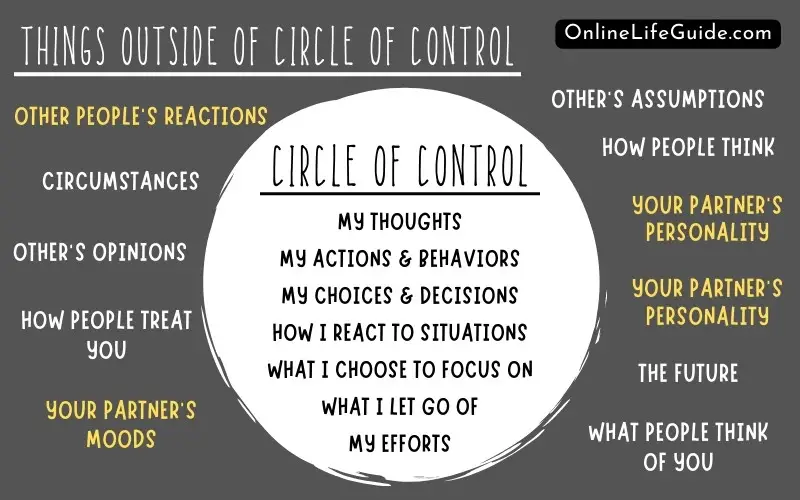
No matter how much we love someone or how close we are to them, we simply cannot change them at our will. Endlessly trying to do something which we cannot do eventually leads to frustration and resentment in the relationship.
Yes, we have a certain degree of influence on people close to us but the only way to utilize that influence is by improving the quality of your own actions and behaviors.
You have a much better chance of influencing a change in someone through proximity by taking charge of your own personal development. By focusing on the things that we can control we begin to strengthen and expand our influence over things that we felt helpless about previously. Our circle of control grows.
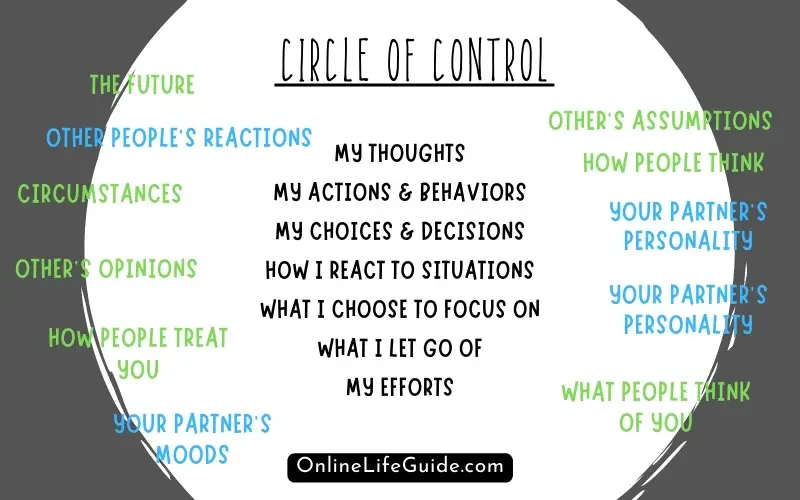
6. Seek External Help
If you’re finding it difficult to deal with enmeshment issues and your partner is not on the same page as you in terms of identifying and resolving this issue, then it’s best to seek professional help.
You might want to try counseling and therapy, or if your partner agrees, see a couple’s therapist. The power of therapy especially during relationship issues is often overlooked and underestimated.
A wise, experienced, and specialized individual can help you see what you’re often unable to see while being stuck in the midst of a problem. They’ll also help you come up with solutions and ways to handle certain aspects of your relationship.
Lastly, make sure to check out the enmeshment vs intimacy article and the boundaries guide I mentioned above so you can have a clear idea of how to set healthy boundaries in your relationship and overcome enmeshment.
Hope this serves you well. Take good care of yourself and I’ll talk to you in the next one!


